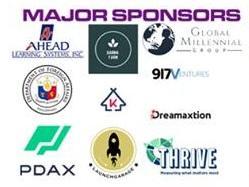THRIVE Project was recently invited to keynote at the ASEAN Youth Career Summit, of which it is a major sponsor. ASEAN, the Association of Southeast Asian Nations, has primary aims to accelerate economic growth, social progress, and cultural development.
At the ASEAN summit webinar, a panel of global experts are invited to share their knowledge. These include government officials, such as those in the departments of education, employment and trade, as well as senior university representatives from across the Southeast Asia region. This event included 45 country ambassadors. This summit, the topic was employment across Southeast Asia.
Our project lead, Morris Fedeli, presented a keynote at the ASEAN Youth Career Summit, exploring the topic of career paths in the ASEAN Diplomatic Sector During Covid-19. Over the last 35 years Morris has hired thousands, as leader of various start-ups, through to being vice chair of organizations with over 37,000 members across three continents.
Morris highlighted two of the United Nation’s sustainable development goals (SDGs). SDG 4 – ensure inclusive and equitable quality education and promote lifelong learning – and SDG 8 – the ability for all to have decent work and productive employment. These goals have largely failed to be met. SDG 8.6 stated that by 2020 the amount of youth not in education, employment or training should be substantially reduced. Less than half of this goal has been met, even before COVID-19. Furthermore, in SDG 8 the United Nations had a GDP growth target of 7%, however this has only managed to reach less than 4.8%. Coupled with the COVID-19 pandemic, this points towards the worst economic crisis since the great depression.

It is important to support youth to build a better future through inclusive education, decent employment, and career development opportunities. Morris highlighted that the world needs to be more active in supporting developing countries in education and career development opportunities, which can in turn boost those countries GDP.
On behalf of the youth, it requires:
Empowerment-Passion persistence and perspiration – the road to success is long.
Determination-Make an impact and build a better future for all. Whenever we face adversity therein lies an opportunity to do better.
Opportunity-With inclusiveness in education opening new opportunities and career development. Always aim to be the best at what you do.
Morris also had four tips for youth in developing countries to take ownership of their situation and personally get ahead.
1. Become entrepreneurial
Increased unemployment has seen an increase in this area among youth. The United Nations has released a framework to address this growing interest. In supporting this, distinguished professors from the THRIVE project team propose a range of ideas to sustainably do this.
2. Develop skills and experience
Theory is essential but for many roles work experience is great. It gives you exposure and helps to build your skills and confidence in a professional environment. In many cases this can result in a direct role.
3. Obtain higher training
Make learning a lifelong objective. You are only as good as your knowledge allows you to be. Standards of education are always rising, and it is never too late to learn.
4. Develop your network
Who you know can often be far more valuable than what you know. Take your time to develop your network of contacts via on-the-job placement and social media. Cast a wide net and try and develop a wide range of contacts.
Finally, Morris expressed that great opportunities exist in this post-pandemic world for those who are willing to learn the skills to develop a social or environmental enterprise. While the world’s problems may seem daunting, the role of the individual is being increasingly relevant to fixing them. Morris also reiterated that volunteering is one of the best ways to get started, build your career, and achieve long-term employment.























